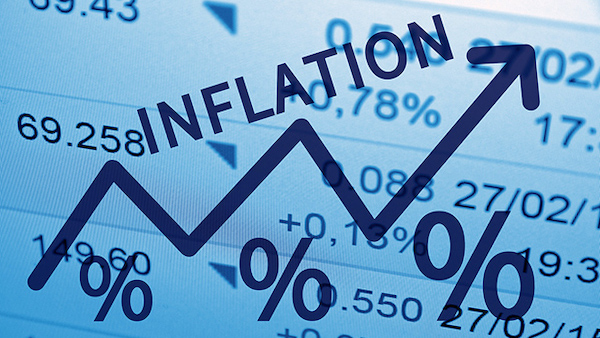Business
Inflation rises to 29-month high of 13.71% in Sept, as food costs soar

Nigeria’s headline inflation, which measures the cost of living through average change in the prices of goods and services consumed in everyday living, quickened to 13.71% in September, 0.49% higher than that of August, data from the statistics office on Thursday morning showed.
The September figure is not only the peak of inflationary pressures in 29 months but also marks 13 consecutive month the inflation rate will jump in Africa’s biggest economy.
The rocketing prices of food items, notably bread, cereals, potatoes, yam and other tubers, meat, fish, fruits and oils and fats accounted most for the rise in inflation in September, the National Bureau of Statistics said in its Consumer Price Index September 2020.
Nigeria’s headline inflation, which measures the cost of living through average change in the prices of goods and services consumed in everyday living, quickened to 13.71% in September, 0.49% higher than that of August, data from the statistics office on Thursday morning showed.
The September figure is not only the peak of inflationary pressures in 29 months but also marks 13 consecutive month the inflation rate will jump in Africa’s biggest economy.
The rocketing prices of food items, notably bread, cereals, potatoes, yam and other tubers, meat, fish, fruits and oils and fats, accounted most for the rise in inflation in September, the National Bureau of Statistics (NBS) said in its Consumer Price Index September 2020.
Read also: Inflation hits 28-month high, rises to 13.22%
Food inflation rose by 16.66% relative to the 16% reported for August. it has been in double digits for more than three years.
“In September 2020, food inflation on a year on year basis was highest in Zamfara (20.94%), Kogi (19.06%) and Plateau/Yobe (18.90%), while Nasarawa (13.94%), Lagos (13.87%) and Ondo (13.59%) recorded the slowest rise,” the NBS said
Inflation will possibly hit 14.15% at the end of December on the back of disruption to supply chain, following the coronavirus outbreak, said the central bank, whose plan to keep inflation between 6 and 9% since 2016 has remained an elusive dream.
“The urban inflation rate increased by 14.31 per cent (year-on-year) in September 2020 from 13.83 per cent recorded in August 2020, while the rural inflation rate increased by 13.14 per cent in September 2020 from 12.65 per cent in August 2020.
“On a month-on-month basis, the urban index rose by 1.56 per cent in September 2020, up by 0.14 from 1.42 per cent recorded in August 2020, while the rural index also rose by 1.40 per cent in September 2020, up by 0.13 from the rate recorded in August 2020 (1.27 per cent),” the NBS report said.
Meanwhile, core inflation, which factors in the costs of all items except volatile agricultural produce, climbed to 10.58%, 0.06% higher than the 10.52% posted the month before.
The sharpest hikes were recorded in the costs of passenger transport by air, medical services, hospital services, pharmaceutical products, passenger transport by road, motor cars, vehicle spare parts, maintenance and repair of personal transport equipment, epair of furniture and paramedical services.
On Tuesday, the International Monetary Fund projected the Nigerian economy would contract by 4.3% this year.
Join the conversation
Support Ripples Nigeria, hold up solutions journalism
Balanced, fearless journalism driven by data comes at huge financial costs.
As a media platform, we hold leadership accountable and will not trade the right to press freedom and free speech for a piece of cake.
If you like what we do, and are ready to uphold solutions journalism, kindly donate to the Ripples Nigeria cause.
Your support would help to ensure that citizens and institutions continue to have free access to credible and reliable information for societal development.
























